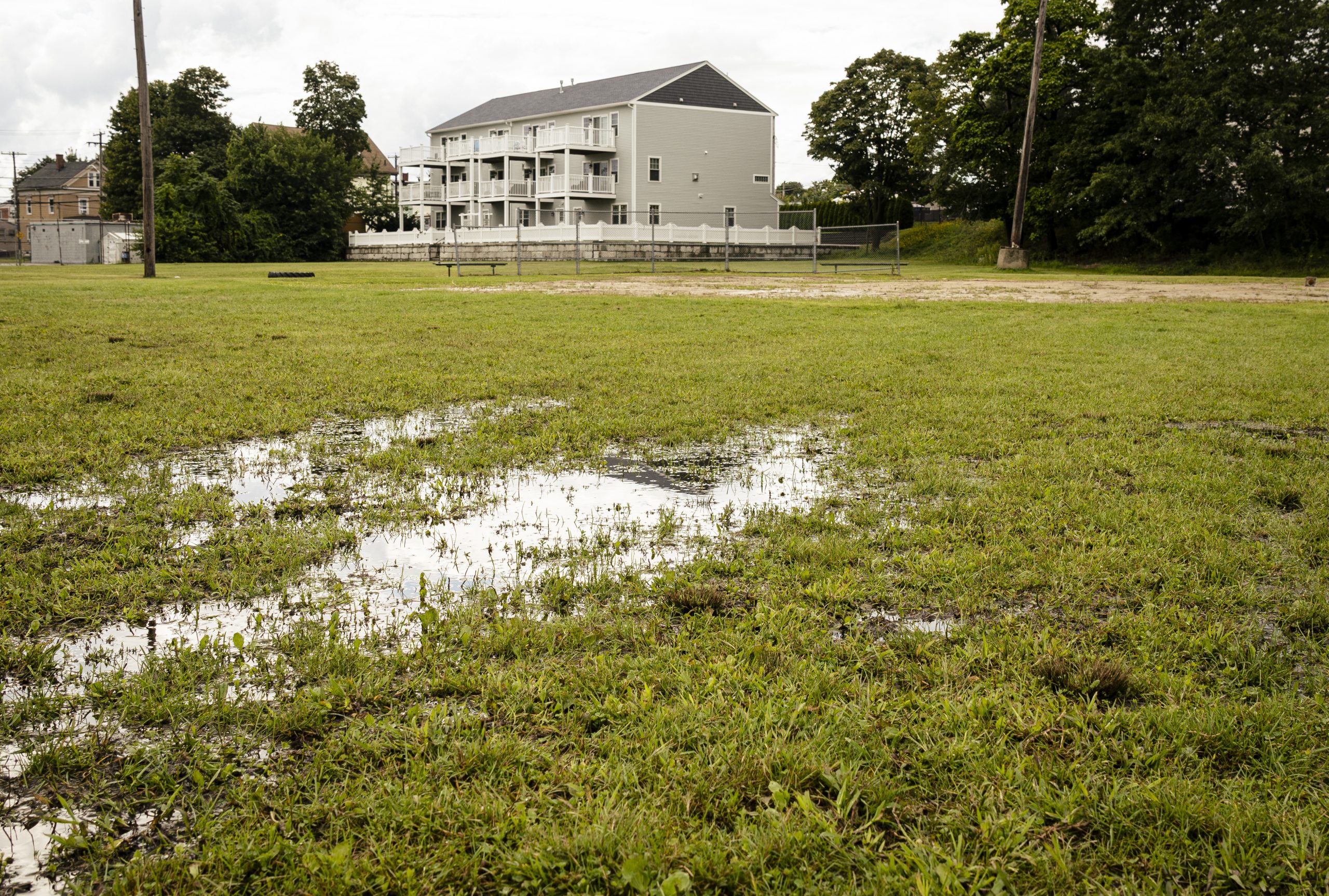The historic General Electric Athletic Association Field, which has been in use for more than 100 years, will be redesigned to improve its recreational facilities and upgraded to respond to the effects of climate change.
Additional improvements in the plan will reduce flooding and increase shading and green space. The plan is part of the city’s efforts to increase climate resiliency and public safety, according to a press release from Lynn Mayor Jared Nicholson’s office.
“The city is prioritizing the redesign of the G.E.A.A. Field to mitigate environmental concerns that directly impact our residents,” Nicholson said in the release. “Creating a more climate-resilient community is a team effort and we encourage residents to contribute to the survey to help us build on sustainable solutions.”
The park is located at the last segment of the Strawberry Brook Conduit where it empties into the Saugus River, and the fields in the area were once part of a wetland associated with the Strawberry Brook and Little River. As a result, the fields and the surrounding neighborhood suffer from frequent flooding, according to the release.
Residents are being asked to provide input on design alternatives for the field’s future. Once community input is received through the survey, a refined design will be be shared with the community in the spring.
“Community input through the survey will ensure the redesign is responsive to community desires for park improvements and environmental benefits,” Principal Planner Aaron Clausen said in the release.
This project is funded through a grant award from the Commonwealth’s Municipal Vulnerability Preparedness Action Grant program, which provides technical and financial support for cities and towns to implement projects to address climate change.
“I’ve been working hard with our delegation and Mayor Nicholson and his team to secure funding for this work, and I’m excited we are moving into the design phase in a collaborative way,” City Council President Jay Walsh said in the release. “I’m looking forward to seeing the transformation of G.E.A.A. Field into a resilient recreational resource for our community for years to come.”

